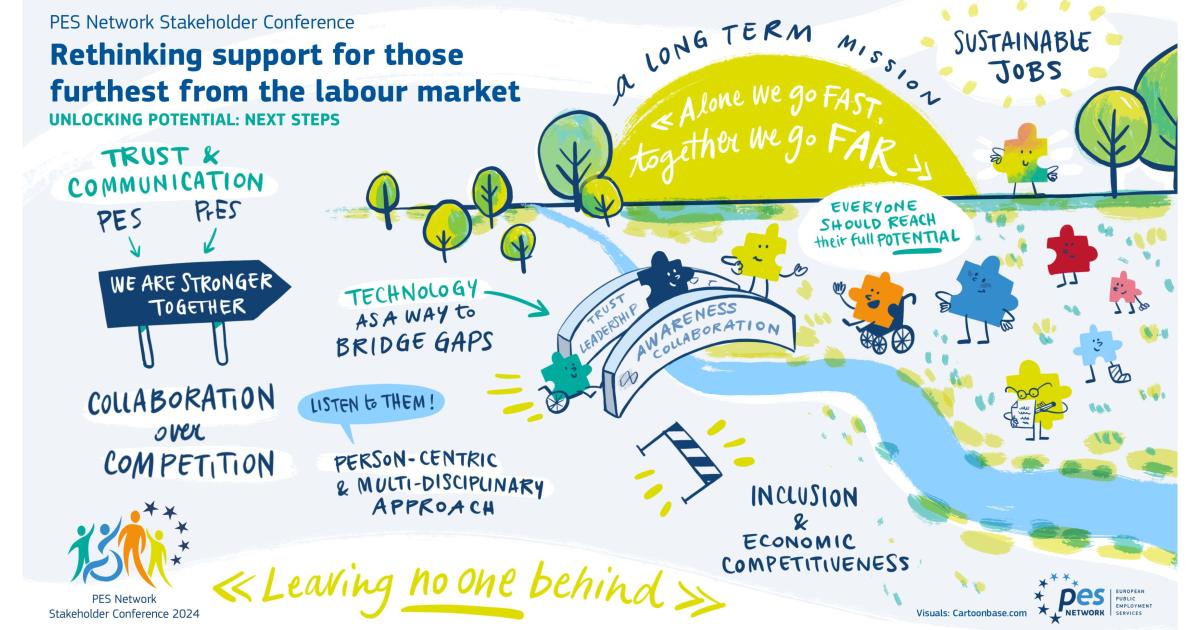The conference showcased new and effective approaches for (re-)integrating jobseekers furthest from the labour market. Despite low unemployment rates, some groups, such as long‑term unemployed; persons with disabilities; those not in education, employment or training (NEET); women in vulnerable situations and caregivers; and older jobseekers face lower employment rates and encounter additional challenges when integrating into the labour market.
The conference was attended by 165 participants including Public Employment Services (PES), with social partners, private employment services (PrES) and employers, non-governmental organisations (NGOs), training providers, international organisations, EU agencies. all committed to addressing the additional challenges faced by those furthest from the labour market.
Key insights and conclusions
The Synthesis Paper outlines the following key learning points and conclusions from the conference:
- A more holistic and person-centred approach is needed. This requires improved cooperation between stakeholders, including a clear understanding of who does what for which clients, while keeping in mind that all stakeholders are working towards a common goal.
- The importance of adequate cooperation between private employment services and public employment services is growing. Therefore, it is vital to build trust between these organisations and monitor how PES and partners working together lead to sustainable outcomes for clients.
- The role of PES is to help every individual to reach their full potential. A key mission is to emphasise that those furthest from the labour market have skills and competencies valued by employers. PES also need to sensitise employers and assist them to create suitable jobs. Listening to the NGOs and social services providers representing or working with clients (including the most vulnerable) is central to designing and delivering quality services.
- PES need to invest more in capacity building. The PES Network is ready to face the challenges of employment and upskilling of persons furthest from the labour market. However, there is a need to invest more in capacity building; digital technology (especially in upskilling); as well as research and piloting to investigate the most effective ways of providing services.
Further information:
To read the full Synthesis Paper from the conference click here.
The PES Network Knowledge Centre, and PES Practices database also have a wide range of information and inspiring practices on the organisation and services of Public Employment Services across Europe.
Get the latest updates from the PES Network:
Get the PES Network’s latest news, events and publications on its priority topics for 2025-2026. Signup to receive the PES Network newsletter!
You can also follow the latest developments from PES Network members in the PES Network LinkedIn group. Click here to join.
Don’t miss the PESPod podcast, featuring guests from across the Network exploring the latest issues, topics and perspective being talked about by Public Employment Services across Europe. Listen to the latest episode here











